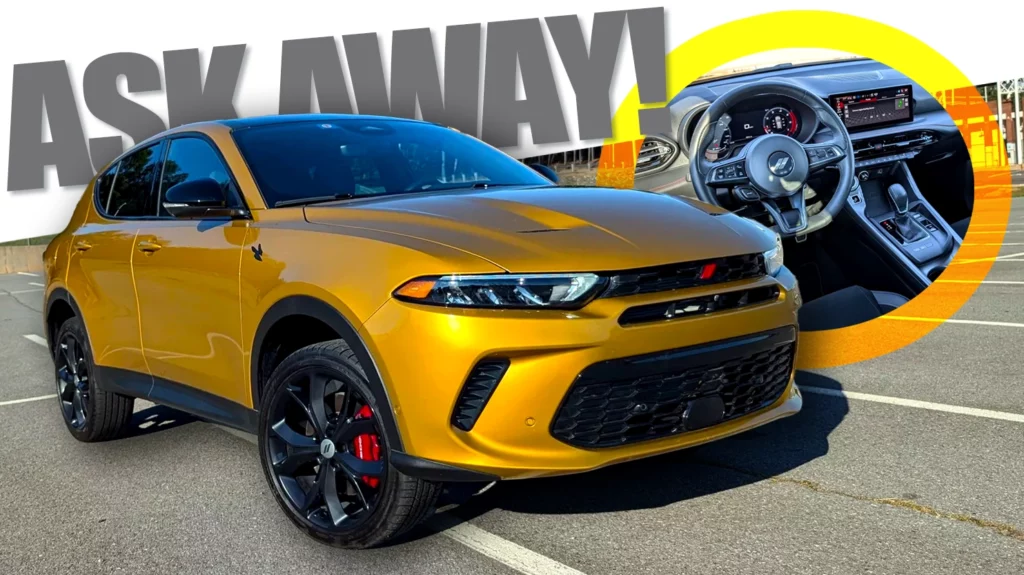- The Hornet GT Plus starts at $36,400, making it more affordable than its Alfa Romeo twin, the Tonale.
- Equipped with a 2.0-liter turbocharged engine, the GT delivers 268 hp and 295 lb-ft of torque.
- We’ll be driving the Hornet over the next week, and we’re currently taking your questions about it.
Few cars have as much riding on them as the Dodge Hornet. After the Charger and Challenger left production in their current forms, the Hornet and the Durango live on. Sure, a new Charger is coming, but for now, the Hornet shoulders a lot of the responsibility. We’ll be spending seven days behind the wheel of one, putting it through its paces. What do you want to know about it?
The Hornet comes equipped with standard all-wheel drive and a 2.0-liter turbocharged inline-four engine. The lower two trims churn out 268 horsepower and 295 lb-ft of torque. Compare those numbers to the competition, and you’ll find the Hornet easily outperforms many rivals. Even top-end versions of cars like the Mazda CX-50 and Volkswagen Tiguan make less power than the base Hornet.
More: Dodge Finally Made A Cool Hornet, But You Can’t Buy One
In fact, Dodge is somewhat banking on positioning this crossover as the enthusiast’s choice. To that end, the GT Plus version we’re driving has a few performance-oriented features. That includes Alcantara upholstery, a dual-mode suspension, and sticky Michelin tires. Don’t forget that this car is made in Naples, Italy by Alfa Romeo, and is essentially Dodge’s rebadged version of the Tonale.
On top of that, it’s paired with a nine-speed automatic gearbox from ZF, the same transmission used in premium SUVs like the Range Rover Evoque and Jaguar E-Pace. Put simply, it’s a high-performance option that reacts quickly without requiring the same cost or maintenance as some dual-clutch units.
The Hornet GT Plus starts at $36,400, but our test car has a few notable options. Beyond what we’ve already mentioned, it features Acapulco Gold paint ($595), the 23L package ($2,245), and the GT Blacktop + Track Pack bundle ($3,990). The 23L package adds intelligent speed assist, a surround-view camera system, and drowsy driver detection. In total, this car would set someone back $44,825, which is no small chunk of change.
However, it’s still significantly more affordable than the Alfa Romeo Tonale, which for the 2025 model year starts at $48,195.
Will it be worth it? How will it compare to other cars in the segment? How does it drive? We’ll find out in the next week. What other questions do you have about this very pivotal car? Let us know in the comments, and we’ll make sure to get you answers soon.














